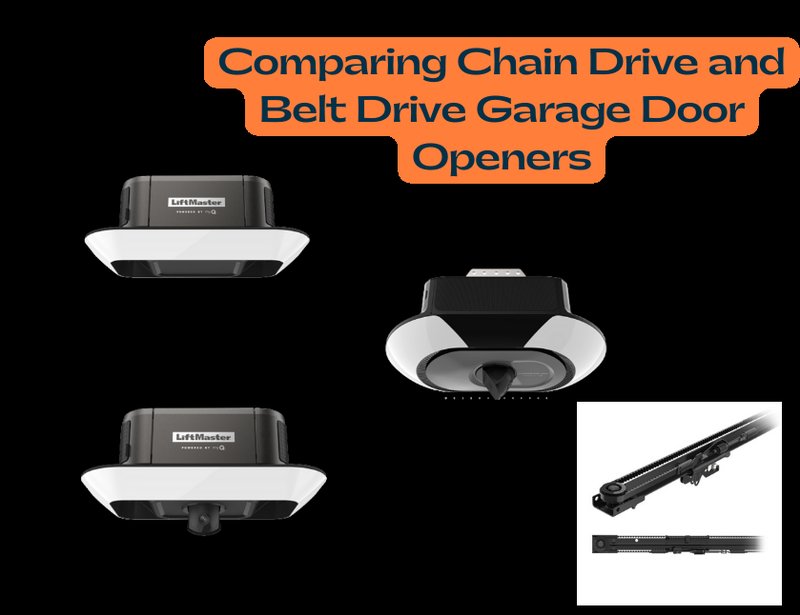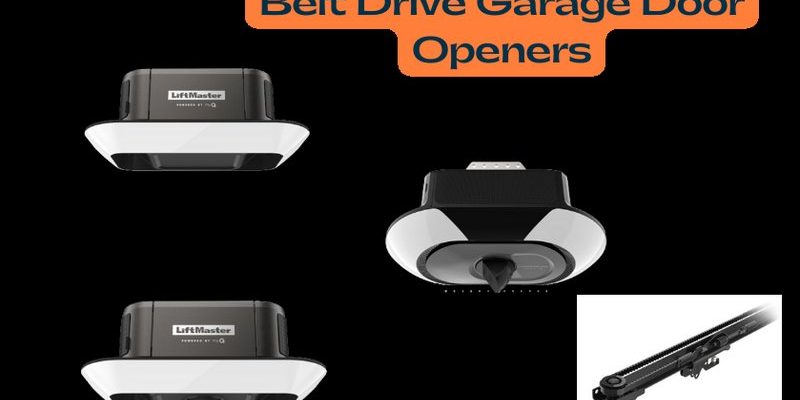
In this article, we’ll dive deep into the world of garage door openers, focusing on the noise reduction technologies they offer. Think of it like choosing between a smooth, quiet ride in a luxury car or a loud, bumpy adventure in an old pickup truck. Both can get you where you need to go, but the experience can vary significantly. Let’s explore how these different drive systems work and which might be best for you.
What is a Garage Door Opener?
A garage door opener is a device that automates your garage door’s opening and closing. It typically consists of a motor, a power source, a remote control, and the necessary hardware to connect everything to the door itself. When you press a button on the remote, it sends a signal to the opener, which then activates the mechanism to either raise or lower your garage door.
Different styles of garage door openers operate based on various designs, but their primary purpose remains the same: convenience. As we evaluate belt drive and direct drive openers, keep in mind that the ultimate criterion is their performance, especially in terms of noise.
Understanding Belt Drive Garage Door Openers
A belt drive garage door opener uses a rubber belt to move the door along its track. Think of it as a bicycle chain, but much quieter and more sophisticated. Utilizing a pulley system, it propels your garage door open and shut with minimal noise.
Belt drive systems are popular for their quiet operation and reliability. They’re ideal for homes attached to garages, as you won’t have to listen to the clanking and grinding typical of some other drive types. They also offer a smooth operation owing to the flexibility of the belt, which effectively absorbs vibrations.
Another perk? They often come with additional features like battery backups, allowing you to operate the garage door in case of a power outage. This can be a comforting thought when you’re rushing in from a storm or trying to get into your garage during a blackout.
Understanding Direct Drive Garage Door Openers
On the other hand, direct drive garage door openers function differently. Here, the motor itself moves along a track, which directly pulls the door up and down. Imagine a strong person lifting a door directly rather than using a system of pulleys. This simpler design makes direct drive systems incredibly reliable.
The best part? They are exceptionally quiet. If noise is a major consideration for you, direct drive openers excel in their whisper-quiet performance. With fewer moving parts, they minimize vibrations and reduce wear and tear over time. This longevity can lead to fewer mechanical issues, which means less hassle for you.
Interestingly, while direct drive openers may come with a higher upfront cost, their durability often pays off in the long run.
Belt Drive vs. Direct Drive: Noise Levels
Now, let’s get to the nitty-gritty of noise levels. Here’s where it really matters.
| Feature | Belt Drive | Direct Drive |
|---|---|---|
| Noise Level | Quieter than chain drives; soft hum | Almost silent; very low vibrations |
| Ideal Environment | Homes with bedrooms above or near the garage | Perfect for any residence needing quiet operation |
If your garage is next to or below sleeping areas, a belt drive may still create some noise, though not nearly as disruptive as older models. Direct drive models typically produce little to no sound, making them ideal for peaceful homes.
Pros and Cons of Belt Drive Garage Door Openers
Belt drive openers have their merits, but like anything, they come with both advantages and disadvantages.
Pros:
- Quieter than chain drives, making them suitable for homes with living spaces near the garage.
- Generally have a longer lifespan due to less wear and tear.
- Many offer robust safety features, including automatic reversal systems.
Cons:
- Tends to be more expensive than chain drive models.
- The belt can wear out over time and might need replacement.
In summary, if you prioritize a quiet operation and don’t mind spending a bit more upfront, a belt drive opener could be a fantastic choice.
Pros and Cons of Direct Drive Garage Door Openers
Direct drive openers also have their unique set of benefits and drawbacks.
Pros:
- Extremely quiet operation due to simplified mechanics.
- Fewer moving parts mean lower chances of mechanical failure and a longer lifespan.
- Great reliability, requiring minimal maintenance.
Cons:
- Initial cost can be higher than belt drive systems.
- Less commonly found in lower-end models, limiting options.
If you want a set-it-and-forget-it garage door opener, direct drive models are hard to beat.
Durability and Maintenance
Both belt drive and direct drive garage door openers are designed to last, but they approach durability differently.
Belt drive systems benefit from robust construction, but the rubber belt can wear out, especially in harsh weather conditions. Regular inspection and occasional replacement will keep your opener humming along nicely.
Direct drive openers, on the other hand, have fewer components that can wear down, reducing your maintenance worries. However, you should still check the motor and track occasionally for any dust or debris that could hinder performance.
Installation Considerations
Installing either type of garage door opener can be a DIY project if you’re handy, but professional help can take away the stress.
Belt drive openers typically require more adjustments due to their pulley systems, which might complicate installation. Direct drive models usually come with straightforward installation instructions, thanks to their simpler setup.
When considering installation, don’t forget about the space above the garage door for proper operation. Ensure you have enough clearance for either system, especially if you’re opting for a direct drive, which often needs a little extra overhead space.
Price Comparison and Value
Let’s talk about the wallet—price matters! Your budget can significantly influence your decision between a belt drive and a direct drive opener.
| Feature | Belt Drive | Direct Drive |
|---|---|---|
| Price Range | $150 – $300 | $250 – $500 |
| Overall Value | Good value for quieter living spaces. | Excellent longevity, may save in repairs. |
While a belt drive might seem more affordable at first glance, consider the longevity and minimal maintenance that a direct drive opener can offer as valuable perks.
Choosing the Right Option for Your Home
Ultimately, your choice depends on a few key factors: the location of your garage in relation to your living area, your budget, and your personal preference for noise levels.
If you have a bedroom right above the garage, a quieter opener is a must. Conversely, if your garage is detached or at a distance, noise might not be as significant a factor.
Thinking about resale value? Quiet garage door openers are increasingly appealing to homebuyers, so investing in a direct drive might pay off down the line.
Choosing between a belt drive garage door opener and a direct drive model ultimately comes down to your needs for sound, budget, and long-term performance. If quiet operation is the top priority, the direct drive system stands out for its silent strength. If budget constraints are tighter, a belt drive still offers a fantastic balance of noise and functionality.
No matter what you decide, remember that a garage door opener is more than just a convenience—it’s a key component to the safety and accessibility of your home. Embrace the journey of finding the perfect opener for you, and enjoy the peace of mind that comes with a well-chosen garage door system!
